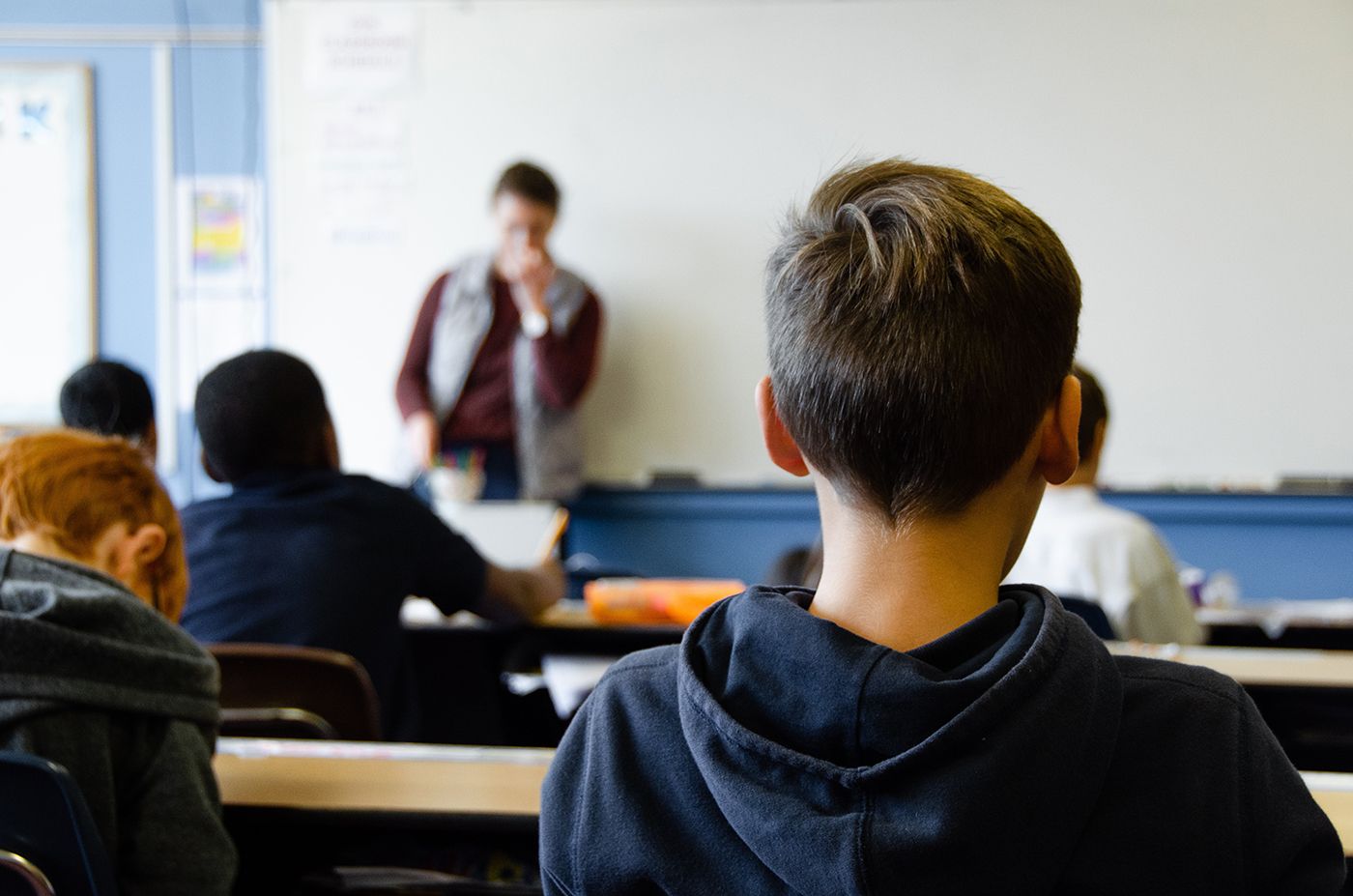
Federal government exploring school discipline policies
By Raymore Journal staff
Research funded by the Department of Justice suggests that zero-tolerance discipline policies in schools may be counterproductive. How does that affect the Raymore-Peculiar School District’s approach to disciplinary action?
A new study indicates there may be a link between zero-tolerance policies and feeling less safe at school. According to the research conducted by Dr. Francis Huang, an associate professor at the University of Missouri’s College of Education and Human Development, such policies are also associated with higher suspension rates, which is not necessarily a good thing.
Although there is no universal definition of a zero-tolerance policy, the study refers to it as a “philosophy or policy that mandates the applications of predetermined consequences, most often severe and punitive in nature, that are intended to be applied regardless of the gravity of behavior, mitigating circumstances, or situational context.” Essentially, one strike and you’re out.
One example the study cites is a 7-year-old Maryland student who was suspended for biting a breakfast pastry into the shape of a gun. The incident occurred just a few months after the 2013 Sandy Hook Elementary School shooting in Connecticut, which garnered nationwide attention.
Dr. Huang’s research reveals a correlation between the number of teachers supporting such strict policies and higher rates of out-of-school suspensions. At schools where staff supports zero-tolerance policies, both students and teachers report lower feelings of safety at school.
“The zero-tolerance assumption that suspending a few students will have specific and general deterrence effects was not supported,” the study states.
Ray-Pec School District’s discipline policies
Also referred to as “exclusionary” discipline, suspensions and expulsions can have long-lasting effects. Students who are suspended or expelled are more likely to drop out or be held back. Additionally, those students are at increased risk of getting in legal trouble.
Despite a wealth of research backing those claims, there is still a lot of support for zero-tolerance policies from teachers. Consequently, misplaced support can set up barriers for school psychologists to implement more effective policies.
What about Raymore-Peculiar School District students? Are they subject to zero-tolerance policies?
When it comes to discipline policies, the Raymore-Peculiar School District appears to be up to date with the science.
Michelle Stidham, communications director for the school district, said all discipline policies allow for some discretion. The school board authorizes immediate suspension or expulsion for more serious offenses. Even in those situations, school administrators are not required to exercise that authority.
Most educators appear to be on board, including the National Education Association.
“Most of us believe that every child, whatever their color, background or zip code, has the right to learn in a supportive environment that respects their humanity, upholds their dignity, and responds fairly to mistakes and missteps,” said Harry Lawson, director of NEA’s Human and Civil Rights Department. “Instead, zero tolerance and other exclusionary school discipline policies are pushing kids out of the classroom and into the criminal justice system at unprecedented rates.”
Government involvement with school disciplinary policies
Although state and local governments usually deal with school issues, the federal government funded Huang’s latest zero-tolerance study.
The idea that zero tolerance-policies are ineffective is nothing new. In 2008, the American Psychological Association’s Zero Tolerance Task Force released a report stating there is no evidence to back up claims regarding the efficacy of zero-tolerance policies.
“An extensive review of the literature found that, despite a 20-year history of implementation, there are surprisingly few data that could directly test the assumptions of a zero-tolerance approach to school discipline, and the data that are available tend to contradict those assumptions,” the report states. “Moreover, zero tolerance policies may negatively affect the relationship of education with juvenile justice and appear to conflict to some degree with current best knowledge concerning adolescent development.”
In a 2014 report, the Council of State Governments urged schools to eliminate zero-tolerance policies and return more discretion to administrators. Comprising of state-level officials, the council’s report signaled a government interest in the matter.
Around the same time as that report, “Rethink School Discipline” federal guidelines were established. Part of that objective is to address data that shows minority students tend to be disciplined more than their peers.
However, a 2016 report by the White House’s Federal Commission of School Safety calls for rescinding “Rethink School Discipline” guidelines. Created shortly after the Parkland, Fla., school shooting, the commission found that “facially neutral school discipline policies” may unintentionally violate federal law, causing a school to lose federal funding. The report considers the guidelines “a forceful federal role in what is inherently a local issue,” essentially questioning the legal framework of the guidance.
In response to the commission’s report, the U.S. House of Representatives directed the Government Accountability Office to submit a report on school shootings, including any links with disciplinary policies. The GAO report also mentions evidence against zero-tolerance policies.
“A growing body of research has highlighted concerns associated with the use of exclusionary discipline and, in particular, zero tolerance policies,” the GAO report states. “For example, as we have previously reported, research has shown that students who are suspended from school lose important instructional time, are less likely to graduate on time, and are more likely to repeat a grade, drop out of school, and become involved in the juvenile justice system.”
However, the GAO report still found some gaps in research. The Justice Department funded Huang’s latest research to fill in some of those gaps.
A U.S. Department of Education spokesperson said the department’s Office for Civil Rights does not comment on outside research. However, it does prioritize nondiscriminatory administration of discipline.